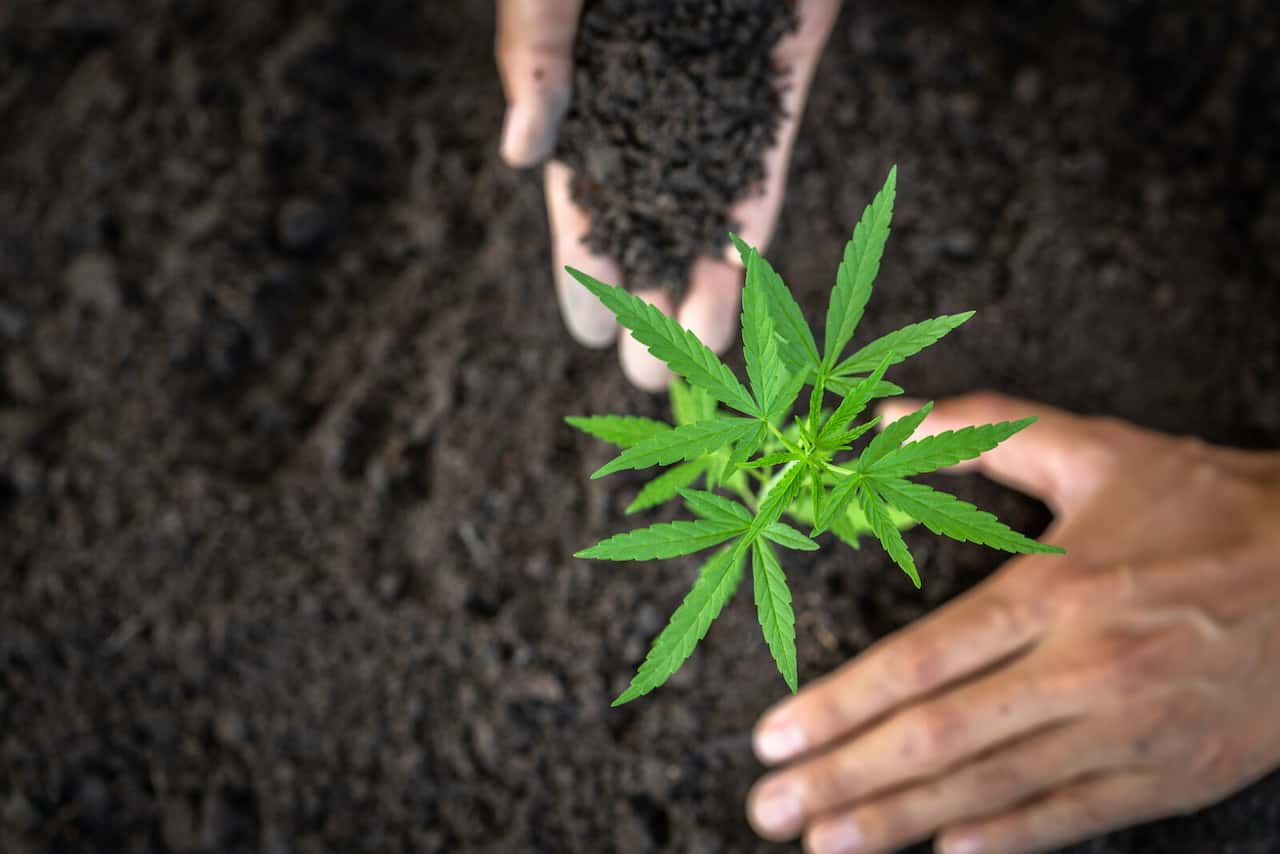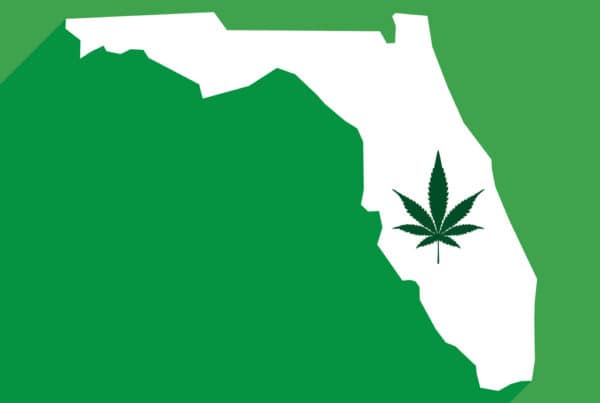TABLE OF CONTENTS
Do you want to learn how to grow marijuana legally in the United States? Whether you want to grow at home for personal use or at a licensed cultivation facility, you must know your state and local cannabis cultivation laws.
In the United States, cannabis cultivation laws vary by state, county, and city. Our cannabis cultivation guide gives you an overview of the different state laws and requirements needed to grow cannabis for commercial or personal use.
How to Grow Marijuana Legally – Commercial Cultivation
If you're a budding entrepreneur hoping to start a commercial cultivation business, you must consider the state and local requirements. Growing marijuana legally requires a license that varies in price and must be renewed annually.
In some states such as California and Colorado, cultivation licenses are tiered depending on the size of your grow facility, environment (indoor, outdoor greenhouse), and the number of plants being grown.
Application fees start as low as $250 in Washington with an additional $1,480 annual license fee. In other states, application fees can easily reach $25,000 with an annual license fee of $75,000 or $100,000 in Arkansas.
How to Grow Marijuana Legally – Home Cultivation
Cannabis home cultivation laws vary by state. Generally, growers must be over the age of 21 to legally grow weed with a home cultivation limit of 6 plants. Growers must only grow for personal use and cannot sell their home-grown weed.
If you’re planning on growing weed legally at home, make sure to research your state and local laws. Local laws will determine the set-up of your indoor or outdoor garden. Gardens must be away from public view and in an enclosed space.
Alaska
- Medical: Up to 6 plants per person over 21
- Recreational: Up to 6 plants, household limit of 12
Arizona
- Medical: Up to 12 plants in a home if the residence is more than 25 miles from a dispensary
- Recreational: Up to 6 plants, household limit of 12
California
- Medical: Up to 100 square feet of grow area per residence
- Recreational: Up to 6 plants
Colorado
- Medical: 6 plants, up to 12 plants per household; If local law allows, patients and caregivers can grow up to 24 plants if they are also registered with the MED and provide any required notice to the local jurisdictions
- Recreational: 6 plants, up to 12 plants per household
Connecticut:
- Medical: No home cultivation for patients or caregivers
Delaware
- Medical: No home cultivation for patients or caregivers
District of Columbia
- Medical: Up to 3 mature and 3 immature plants per patient, limit of 12 per residence
- Recreational: Up to 3 mature and 3 immature plants per adult, limit of 12 per residence
Florida
- Medical: No home cultivation for patients or caregivers
Georgia
- Medical: No home cultivation for patients or authorized guardians
Hawaii
- Medical: Patients and caregivers may grow up to 10 plants at home
Illinois
- Medical: Up to 5 plants per household
- Recreational: Decriminalized; Up to 5 plants per household results in a $200 fine
Iowa
- Medical: No home cultivation for patients or caregivers
Louisiana
- Medical: No home cultivation for patients or caregivers
Maine
- Medical: Up to 6 mature and 12 immature plants and unlimited seedlings
- Recreational: Up to 3 mature and 12 immature plants and unlimited seedlings
Maryland
- Medical: No home cultivation for patients or caregivers
Massachusetts
- Medical: Up to 6 plants (if the patient obtained a hardship cultivation registration)
- Recreational: Up to 6 plants per person; household limit of 12
- Medical: Up to 12 plants
- Recreational: Up to 12 plants
Minnesota
- Medical: No home cultivation for patients or caregivers
Mississippi
- Medical: No home cultivation for patients or caregivers
Missouri
- Medical: A patient may possess up to 6 flowering plants, 6 nonflowering plants, and 6 clones. Two patients may share one enclosed, locked facility. No more than 12 plants may be grown in a single space unless the caregiver is growing on behalf of a third patient, in which case they may grow a total of 18 plants.
Montana
- Medical: Up to 4 plants
- Recreational: Up to 4 mature plants and 4 seedlings, 8 plant limit per household
Nevada
- Medical: Allowed if access to dispensaries is limited
- Recreational: Up to 6 plants per person and 12 per resident if no dispensary is within 25 miles
New Hampshire
- Medical: No home cultivation for patients or caregivers
New Jersey
- Medical: No home cultivation for patients or caregivers
- Recreational: Not yet determined
New Mexico
- Medical: Qualified and registered patients and caregivers can grow up to 16 plants in their home, but only 4 may be mature at once
- Recreational: Adults 21 and older can grow up to 6 mature and 6 immature cannabis plants, with a maximum of 12 mature plants per household
New York
- Medical: 3 immature and 3 mature plants as of Oct. 1, 2021
- Recreational: 3 immature and 3 mature plants (illegal until 18 months after the first adult dispensary opens; limit of 6 mature plants per household)
North Dakota
- Medical: No home cultivation for patients or caregivers
Ohio
- Medical: No home cultivation for patients or caregivers
Oklahoma
- Medical: Qualified and registered patients and caregivers may grow up to 6 mature plants and 6 seedlings
Oregon
- Medical: Patients can grow 6 mature plants, 12 immature plants that are taller than 24 inches, and 36 immature plants that are shorter than 24 inches; Other limits apply related to zoning and previous laws with patients being grandfathered in
- Recreational: Up to 4 plants per residence (some restrictions apply)
Pennsylvania
- Medical: No home cultivation for patients or caregivers
- Medical: Qualified patients may grow up to 12 mature plants and 12 seedlings in their home. Registered caregivers may grow up to 24 mature plants in 24 seedlings in their home.
South Dakota
- Medical: Up to 3 plants, or an amount prescribed by a physician
- Recreational: Up to 3 plants, 6 plant limits per household (if there are no dispensaries in the jurisdiction an individual lives in)
Texas
- Medical: No home cultivation allowed
Utah
“
There are over 300,000 jobs in the cannabis industry. CTU trained me for one of them!

Makes $24.50 @ THC +
- Medical: No home cultivation allowed
Vermont
- Medical: Up to 2 mature and 7 immature plants (some restrictions apply)
- Recreational: Up to 2 mature and 4 immature plants
Virginia
- Cultivation: Up to 4 plants; all plants must be tagged with the grower’s name, driver’s license number, and a note that says it’s being grown for personal use
West Virginia
- Medical: No home cultivation for patients or caregivers
Washington
- Medical: Up to 6 plants per patient; limit of 15 per residence
- Recreational: Not allowed
Learn How to Grow Marijuana Legally at Cannabis Training University
If you're interested in learning how to grow marijuana legally at home or for commercial purposes, enroll in Cannabis Training University’s online cannabis college.
CTU provides students from all over the world with a comprehensive curriculum that covers every aspect of the industry. Whether you're a consumer or an entrepreneur, we can give you a well-rounded education so you can start growing marijuana today! We offer courses ranging from growing to cooking to how to start a medical marijuana business.

Fred Hernandez
Fred Hernandez is a highly accomplished and versatile writer, boasting an extensive background in the cannabis industry. With an in-depth understanding of various sectors including cultivators, processors, retailers, and brands, Fred's expertise spans across the entire cannabis landscape. As a prominent contributor to CTU, he consistently delivers insightful articles exploring the latest developments, news, and regulations shaping the cannabis industry. Whether it's delving into the intricacies of cannabis products, cannabis strain reviews, or providing comprehensive analyses of cannabis laws, or sharing expert insights on cannabis cultivation techniques, Fred's wealth of knowledge positions him as an invaluable writer and educator for all cannabis-related subjects.












 Jeff was involved in an accident where he endured a traumatic brain injury. He had a week-long stay in ICU where brain surgeons
Jeff was involved in an accident where he endured a traumatic brain injury. He had a week-long stay in ICU where brain surgeons  100% risk free money back guarantee within 48 hours after purchase if student has not completed any of the courses or exams.
100% risk free money back guarantee within 48 hours after purchase if student has not completed any of the courses or exams.